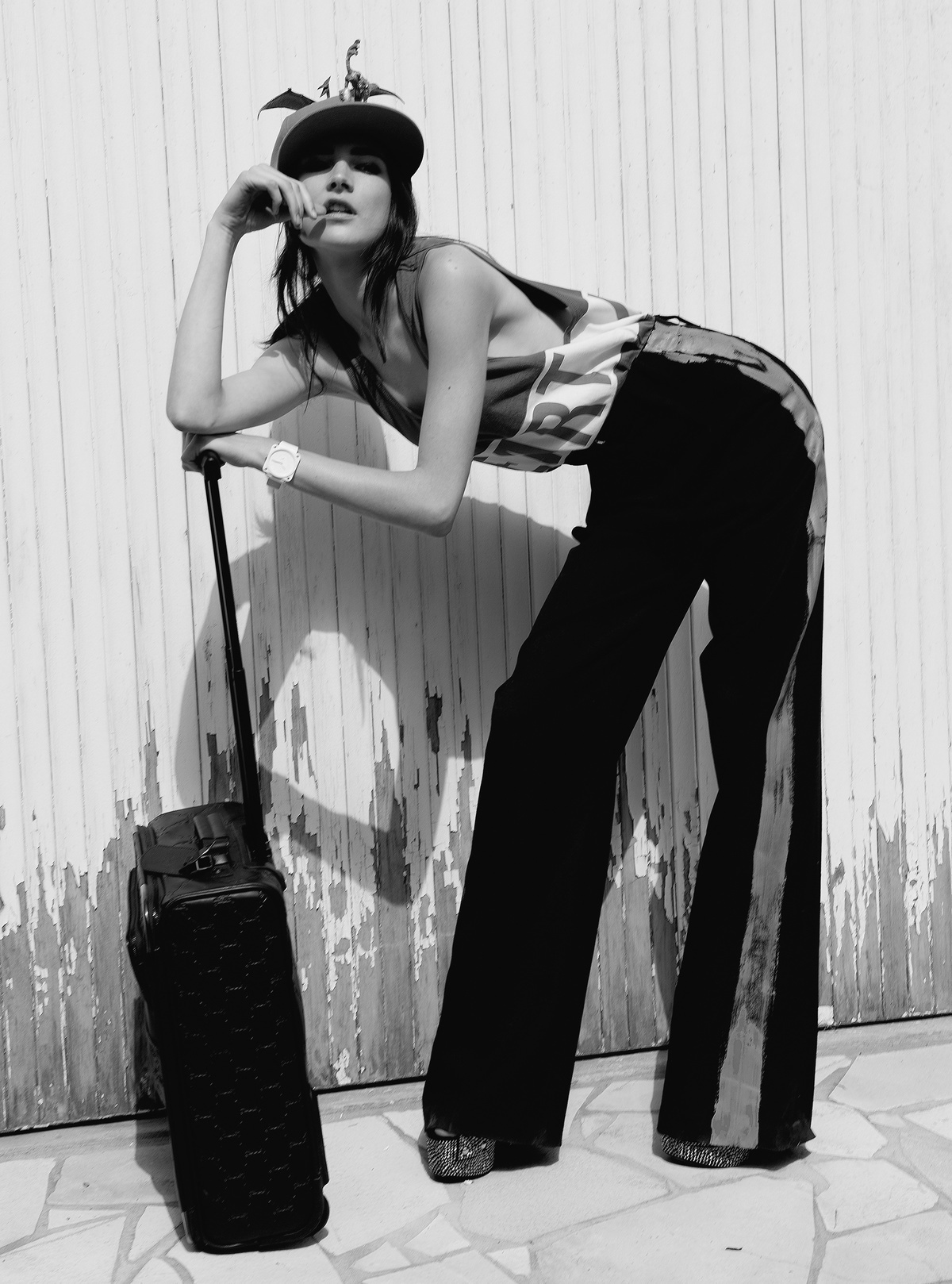American model Jacquelyn Jablonski, who has fronted campaigns for Calvin Klein and appeared on the pages of i-D, is using her platform in the fashion industry for good, launching a charity to help people with autism transition into adulthood. Having grown up with a brother who has autism on the more severe end of the spectrum, the condition is a subject close to Jablonski’s heart. That’s why the New Jersey-born model is launching Autism Tomorrow, a foundation benefiting the future for adults with autism and contributing to the well-being of generations to come. Ahead of her first silent auction on May 10 to help launch the foundation, we spoke to Jacquelyn to find out more about the condition and Autism Tomorrow.
Can you tell us a bit more about Autism Tomorrow?
Autism Tomorrow is a non-profit organization striving to provide housing, job opportunities, and quality living for adults with autism. The number of children diagnosed with autism has drastically increased to 1 in 68, resulting in a generation of adults on the spectrum with nowhere to turn. In the U.S., 500,000 teens with autism will age into adulthood over the next decade. With this number of individuals “aging out” of their schooling, it is our mission to help this population transition into adulthood. Autism Tomorrow deals with tomorrow’s challenges today, providing hope for the future of these adults with autism and their families.
Why is it a subject that’s so close to your heart?
My brother Tommy was diagnosed with autism at the age of 2 and is on the severe end of the spectrum. Our family did not know much about autism at the time and wondered if he would ever speak. When you are young, you want to assume it is not a lifelong condition. As Tommy and I grew together into adulthood, I realized that was not the reality. My brother is now 20 years old, approaching the end of his schooling, with no set path for the next chapter of his life.
How was your experience of growing up with a family member who has autism?
It was tough. I definitely went through an embarrassment phase. People with autism have a propensity to act up, often times in public places. Tommy for example, would have random outbursts in restaurants because he could not use words to express himself. As I got older, I got stronger and learned to embrace it. I realized there is no reason to feel ashamed and the misunderstood looks from people no longer bothered me.
What improvements could be made to help support adults with the condition?
Awareness is the most important. It seems everyone knows someone who is on the autism spectrum. The more the community understands autism, the more opportunities there will be for the future of these adults.
What is the most important thing that you’d like people to know about autism?
One in 68 children are diagnosed on the autism spectrum. One in 68 of these children will be adults with autism tomorrow. Autism does not end when their schooling ends and we need to provide more opportunities for these adults.
How has your career as a model helped you to bring the issue to the public eye?
My career has definitely allowed me to help raise autism awareness. Social media has been a large way for me to have a voice and educate people on the severity of this issue.
What has the support been like from within the fashion industry?
The support has been amazing! It has also been exciting to learn about others related to the cause and share stories. I am looking forward to our first silent auction with many generous donations from photographers in the industry at Milk Studios on May 10th.
What is the next step for the Foundation?
The next step for the foundation is to send out a call for applications to transition programs. We will then review the applications and offer grants to the ones that will do the most good.
Credits
Text Lula Ososki
